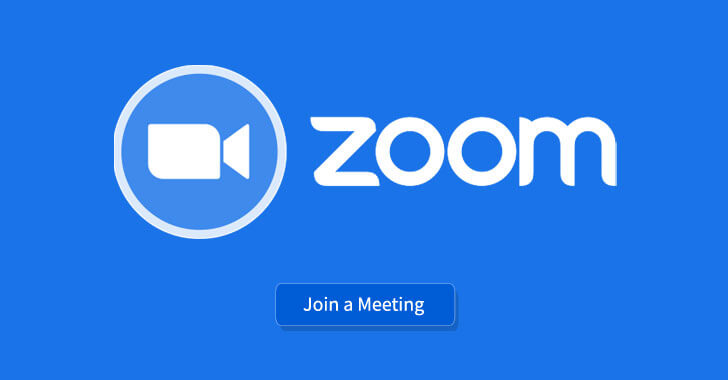Zoom: The long arm of the Chinese government?
The position that Zoom occupies in the Internet technology and social media space, even though apparently enviable to the uninitiated, could eventually turn out to hurt the enterprise in the long run. For one, of all the social media platforms in the West – Facebook, Messenger, Twitter, YouTube, the Google Meet, and so on – […]

The position that Zoom occupies in the Internet technology and social media space, even though apparently enviable to the uninitiated, could eventually turn out to hurt the enterprise in the long run. For one, of all the social media platforms in the West –
Facebook, Messenger, Twitter, YouTube, the Google Meet, and so on – only Zoom can operate in China because of that country’s Internet firewall.
To be sure, Zoom’s presence in China gives it an added advantage over its direct competitors in the videoconferencing service business (WebEx, Skype, Google Hangouts, FaceTime, Vimeo, etc.), most of which are banned from operating in China. Because the technology of videoconferencing is not difficult, the barrier to fending off competitors is not at all formidable.
However, Zoom’s competitors are at a disadvantage as the playing field is not level because the competitors are banned in China. This is unfortunate as some of these competitors have more mature and advanced tools compared to Zoom.
Zoom is well entrenched in China. According to the UK Guardian of 24 April 2020, “The Citizen Lab, a digital communications laboratory based at the University of Toronto, warned in early April 2020 about potential security risks (with Zoom). Security keys, which are supposed to encrypt conversations in some cases, are delivered to participants in a Zoom meeting through servers that were in Mainland China, it said in a special report published earlier this month.” The UK Guardian article also states that Zoom “owns three companies in China that develop its software.” Citizen Lab has been quoted as suggesting that “this arrangement may make Zoom responsive to pressure from Chinese authorities.” Another side of Zoom’s presence in China is the trust that can be placed on the company. As a company in China, Zoom will be required by the Chinese government to collect and hand over data. Thus, I can see how institutions in the US dealing with sensitive data will think twice before exposing themselves via Zoom.
Zoom’s founder, Eric Yuan, is a recent immigrant to the US. On arriving in the US, he reportedly worked for the US videoconferencing company WebEx for up to four years; after which he left to form Zoom to compete with WebEx and perhaps leverage what he learned at WebEx. But Yuan appears to maintain a very close relationship with China.
It does not appear that Zoom is serious about the protection of personal data of citizens, compared to the typical American company. For example, Zoom has reportedly said in a statementthat it “must comply with laws in the countries where we operate,” while expressing regret “that a few recent meetings with participants both inside and outside of China were negatively impacted and important conversations were disrupted.” The company reportedly also added that “it was not in the company’s power to change the laws of governments opposed to free speech.” This apparent lack of commitment to security on the part of Zoom could have been responsible for the circumstances that led to the “Zoombombing” phenomenon of the platform whereby you could join any zoom meeting even if you were not invited. Zoom has also been accused of illegally sending user’s data to Facebook and sharing Linkedin information, even for users using fake names.
According to The Washington Post newspaper, thousands of Zoom cloud recordings have been exposed on the web and many have been posted onto unprotected Amazon Web Services (AWS) buckets, enabling you to find them via an online search. “One search engine that can look through cloud storage space turned up more than 15,000 Zoom recordings,” according to The Washington Post. Zoom has also been accused of engaging in deceptive advertising, when it claims that its tool has end-to-end encryption, when it didn’t.
Ironically, while Twitter, on 11 June 2020, reported its blocking of more than 170,000 propaganda accounts allegedly created by the Chinese government, Zoom was busy helping the Chinese government tocrackdown activists particularly in matters concerning the 30th anniversary of the massacre in Tiananmen Square in Beijing and the pro-democracy riots in Hong Kong. Zoom is basically blocking the accounts of anti-China activists thereby preventing them from engaging in video meetings.
Suzanne Nossel is the CEO of PEN America, which is a company founded in 1922 and headquartered in New York City. The company, which is non-profit, seeks to defend and celebrate free expression in the United States and worldwide through the advancement of literature and human rights. Nossel condemned Zoom for “bowing to the Chinese government.” “Zoom portends to be the platform of choice for companies, school systems and a wide range of organisations that need a virtual way to communicate, especially amid global lockdown. But it can’t serve that role and act as the long arm of the Chinese government. You don’t get to have it both ways,” Nossel reportedly added.
The Chinese Human Rights Defenders (CHRD) organisation promotes human rights and empowers grassroots activism in China.
A deputy director of research at the organisation, Frances Eve, reportedly stated that “Zoom must stop enabling government suppression of free expression rights.”
It seems that anything you say, upload, or otherwise create while using the zoom videoconferencing platform could be available to the Chinese government, and without your permission or knowledge.
